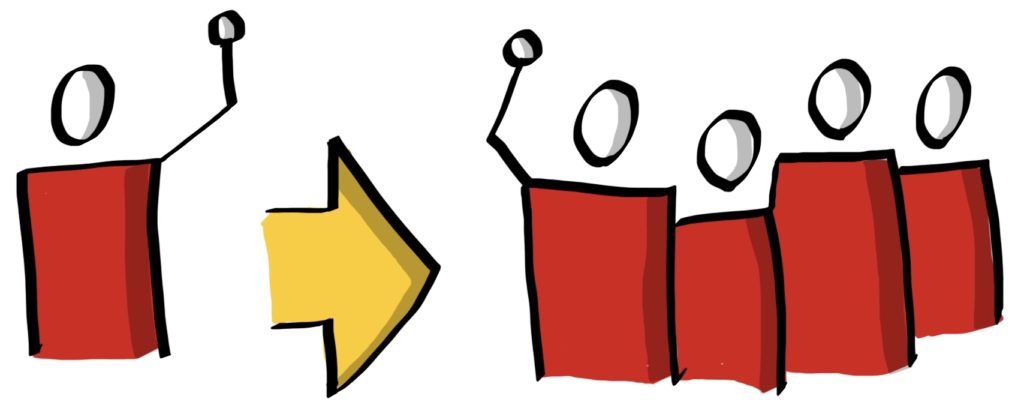 Recruitment processes for agile team coaches differ greatly from one company to another. Jan Grape and Yassal Sundman share their insights on what makes for a good process based on their work recruiting coaches for their clients.
Recruitment processes for agile team coaches differ greatly from one company to another. Jan Grape and Yassal Sundman share their insights on what makes for a good process based on their work recruiting coaches for their clients.
The basic steps of a recruitment process:
- Peer interview
- Team interview
- Manager interview
- Feedback
- Retrospective
After each step the interviewers need to decide how to proceed: either move forward to the next step, or end the process and thank the candidate for their time.
Peer Interview
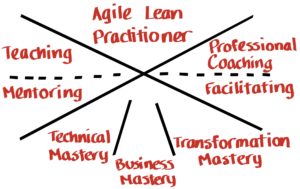 Yassal: It’s good to make sure that the candidate’s experience matches what’s written in the resume before involving the whole team. I like holding the interview with another coach. It’s like pair programming. One person will catch what the other misses. It also helps us to converge on our definition of what a good coach looks like.
Yassal: It’s good to make sure that the candidate’s experience matches what’s written in the resume before involving the whole team. I like holding the interview with another coach. It’s like pair programming. One person will catch what the other misses. It also helps us to converge on our definition of what a good coach looks like.
Jan: During the interview we try to cover the areas described in Lyssa Adkin’s Agile Coaching Competency Framework to assess the candidate’s level of professional experience and knowledge. The questions fall into three categories:
- Knowledge and understanding. “What is the difference between Agile and Lean?”, “What is the purpose of a daily standup?”, “What is important when introducing change in a team?”. I listen to the answers, the reasoning and the candidate’s reaction when they don’t have answer. This helps me determine the candidate’s depth of knowledge and how honest they are about their limitations.
- Dealing with (normal and exceptional) situations. “Describe what you do when you meet a team for the first time? Why?”, “Give an example of a really successful retrospective you had. What made it successful?” These are questions that tell me how the candidate likes to work as a coach, what practices they prefer, how they approach problems.
- Evidence of actual improvements that stick. “What happens with your team’s daily standup if you call in sick the same morning?”, “Give an example of a lasting improvement you have been part of introducing”, “What improvements have your old team (from some previous engagement) done since you left?” A good coach doesn’t take center stage. They help the team become self sufficient.
Team Interview
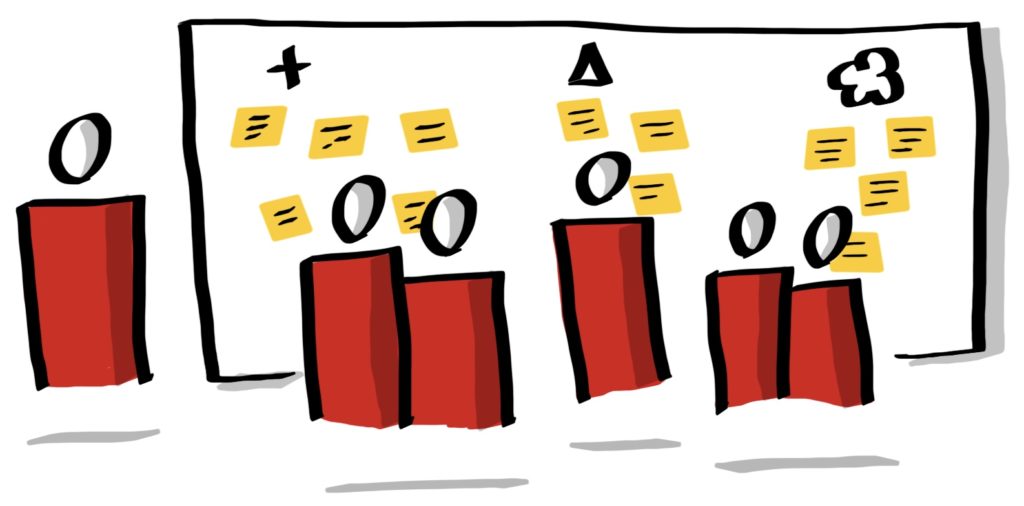 Yassal: This is usually the “make it or break it step”. Some candidates can really talk the talk, but flounder when they face a real life situation. A retrospective is a great way to involve the whole team! Most coaches will be facilitating or guiding others in facilitations, so comfort in the situation is important. Coaches commonly face unexpected dynamics and challenges, so this is a good way to get a feel for how they can handle impromptu facilitation situations. It’s also a great way for the whole team to get to know the candidate!
Yassal: This is usually the “make it or break it step”. Some candidates can really talk the talk, but flounder when they face a real life situation. A retrospective is a great way to involve the whole team! Most coaches will be facilitating or guiding others in facilitations, so comfort in the situation is important. Coaches commonly face unexpected dynamics and challenges, so this is a good way to get a feel for how they can handle impromptu facilitation situations. It’s also a great way for the whole team to get to know the candidate!
Jan: The interview starts already before the retrospective with what questions the candidates ask, how much in control they need to be and how worried/nervous they are before the event. We do everything we can to make the candidate as comfortable as possible. We want to set them up for success (and we don’t want the team to waste time on a bad retro).
The retrospective is evaluated from several viewpoints:
- Did the retro actually end up with some valuable improvement(s) to implement?
- How did the candidate interact with the team? Tone? Listening? Driving the team’s agenda or their own agenda?
- Was it well facilitated? Did everyone get a chance to speak? Time management? Ability to manage the energy in the room?
- How did the individual team members experience the retro? How did it feel to be facilitated by the candidate? Would they like to have the candidate as their coach?
Manager Interview
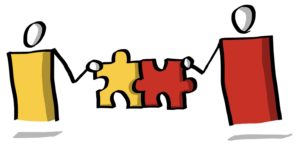 Jan: The coach and the manager are both responsible for creating an environment where the team can be successful. From the coach’s point of view, the manager is (among other things) an escalation point and from the manager’s point of view, the coach is the one that is in direct contact with the team and its members on a daily basis. The goal with this interview is to find out if the manager and coach share the same views, if they have the chemistry or can find the routines to work well together and if the manager thinks the candidate is a good fit for the organization and its culture.
Jan: The coach and the manager are both responsible for creating an environment where the team can be successful. From the coach’s point of view, the manager is (among other things) an escalation point and from the manager’s point of view, the coach is the one that is in direct contact with the team and its members on a daily basis. The goal with this interview is to find out if the manager and coach share the same views, if they have the chemistry or can find the routines to work well together and if the manager thinks the candidate is a good fit for the organization and its culture.
Feedback
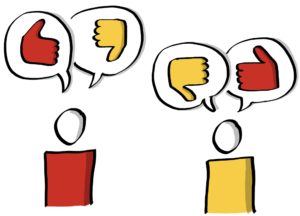 Yassal: Regardless of the outcome from the interviews the candidate deserves concrete, useful and respectful feedback from the interviews.
Yassal: Regardless of the outcome from the interviews the candidate deserves concrete, useful and respectful feedback from the interviews.
Jan: If the interviews are successful and the candidate is offered the job, the feedback is easy since most of what you have to say is positive. Extra care has to be taken when rejecting candidates. They have done hard and difficult work (this process demands a lot from the candidates) and they deserve to be treated with respect. Also, there is no need to burn any bridges, they might still be a candidate for future positions even if this one didn’t work out.
Yassal: The recruiter who’s been the primary contact for the candidate is usually the one who delivers the news. Update the recruiter with the relevant feedback so that they can pass it along if the candidate asks for it. Remember that feedback goes both ways! Make sure to gather feedback from the candidate about how they’ve experienced the process.
Retrospective
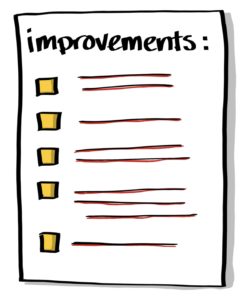 Yassal: There’s always room for improvement! It’s good to spend some time discussing the process and what could be improved after an interview. What to look for:
Yassal: There’s always room for improvement! It’s good to spend some time discussing the process and what could be improved after an interview. What to look for:
- Is everybody clear on what the process is?
- Are we aligned on the criteria used for deciding if the candidate is a good match?
- How did the candidate feel during the process? Was the process clear to them?
We hope that these insights will help you when you’re recruiting and we would love to hear from you about what’s worked well for you, so drop us a line. Remember, the process that’s right for you is the one that works for you!
Get in touch via my homepage if you have questions or comments!




I am not greedy to join such a fantastic organization, if I dont deserve but atleast want to experience one such pragmatic and engaging interview process some day!
Great piece of writing and definitely this post will (if read and understood well) drive many organizations to reflect and revisit their current processes involved for hiring coaches!